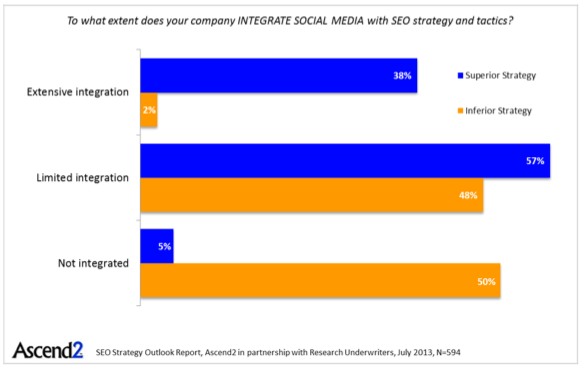What makes one SEO company successful and another fail? There could be a multitude of factors, but according to a recent study by Ascend2, chances are social integration is the key. Successful SEO companies integrate social media into their SEO plans and strategies far more than companies who report they are struggling.
Ascend2, a popular research agency, surveyed nearly 600 businesses and marketing professionals from around the world and asked the participants to rate their own companies’ SEO success. The survey then compared the answers from the 15 percent who rated their companies as “very successful” with SEO and the 18 percent who reported being “not successful.” This creates a relatively small sample size, but the findings are still interesting, and as Matt McGee from Search Engine Land suggests, would appear to hold up to larger samples.
By far the biggest difference between the companies is their use of social media within their SEO strategy. Their charts show that 38 percent of those reporting “very successful” with SEO are doing extensive social integration, while only two percent of the “not successful” companies say they are. On top of that, a full 50 percent of the “not successful” companies report doing no social media integration at all. Frighteningly, when looking at the results of all those surveyed, almost a quarter of the companies said they were not integrating social media into their SEO strategies.
The full report is available for free, though you do have to give your contact information. You would think at this point most SEO professionals would be aware of how important social media is to your SEO strategies. These results however show just how many companies are working with strategies that are behind the times and dragging their companies down.




